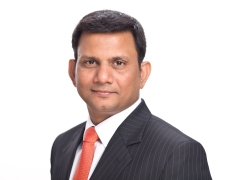Making a telecoms operator or service provider leaner and meaner in the marketplace requires multiple disciplines. Among them, forward planning is by far the most significant. It is this that allows them to make the long-term investments and business process changes needed to user in a new era of automated telecoms networks and service delivery.
As telcos plan today for future consumption, service needs and network expansion, now is also the time to begin folding in new technologies that can make next-generation network more autonomous and self-sustaining. This initial capital expenditure (CapEx) forms part of investment that would be made regardless as operators rebuild to fully support fibre broadband, 5G, 4K streaming and a plethora of other over-the-top (OTT) services.
The difference is that it is about investing in technologies to make networks smarter and reduce longer term operational expenditure (OpEx), reducing the people time needed to set-up, fix and fettle networks on a day-to-day basis, says Avi Kulshrestha, Industry head – Communications Media, Entertainment Europe & OEM Global, Infosys.
Making them capable of reconfiguring and rerouting when issues arise, capable of using big data to understand the network landscape and pre-empt traffic demands and needs. As well as of course automating the often costly and laborious process of enabling lines and provisioning services and accounts for new customers and those expanding what they are buying from a telco.
Network automation is not a niche market, with data centre automation investment alone expected to hit $7.5bn globally by 2019. The growth in spending is a reflection of the wider savings and efficiencies it can unlock for network operators such as telcos, which often have the most complex network topologies.
One area where intelligent network infrastructure is set to make the biggest impact on OpEx is in fault finding, fixing and bypassing. The notion of ‘network heal thy self’ is particularly important in the telco sector. Downtime avoidance is paramount to maintain profitability as well as ensure customer satisfaction is safeguarded in the face of unprecedented market competition.
Fail to keep customers happy due to persistent network failures or slow response times to support and new product requests, and customers will walk to your competitors. This is particularly true in markets like the UK where service portability and rapid account transfer between providers to promote competition is enshrined in law.
Telcos are set to tackle this with several solutions. Software-defined networks (SDN) and software-defined data centres (SDDC) are set to shape the next generation of telco networks and telco investment. These, teamed with smart data analytics will allow networks to function with a degree of cognitive awareness, allowing them to deliver self-healing, alongside predictive response to peaks in demand driven by factors such as user traffic characteristics, diary items and major holidays.
It is no secret that the sector has struggled for decades with the time it takes to launch new products, or indeed provision new connections and service parameters for customers. Even today, the notion of a consumer of a business waiting weeks for a new broadband service to be provisioned over an existing line is still normal.
In the face of growing competition and wireless challengers, this is no longer viable. Being able to manipulate physical infrastructure and service settings entirely in software will address this.
Telco operators must ultimately invest for a future where networks command significantly fewer resources. That means less time spent by engineers to manage them, less money spent on energy, less money spent on maintaining parallel infrastructures.
Automation and smart networks that can use cognitive intelligence to self-heal and self-manage will reduce operating costs considerably. Doing so will improve operating margins and allow telcos to be more competitive in increasingly cost-driven marketplaces.
The author of this blog is Avi Kulshrestha, Industry head – Communications Media, Entertainment Europe & OEM Global, Infosys
Comment on this article below or via Twitter: @ VanillaPlus OR @jcvplus






